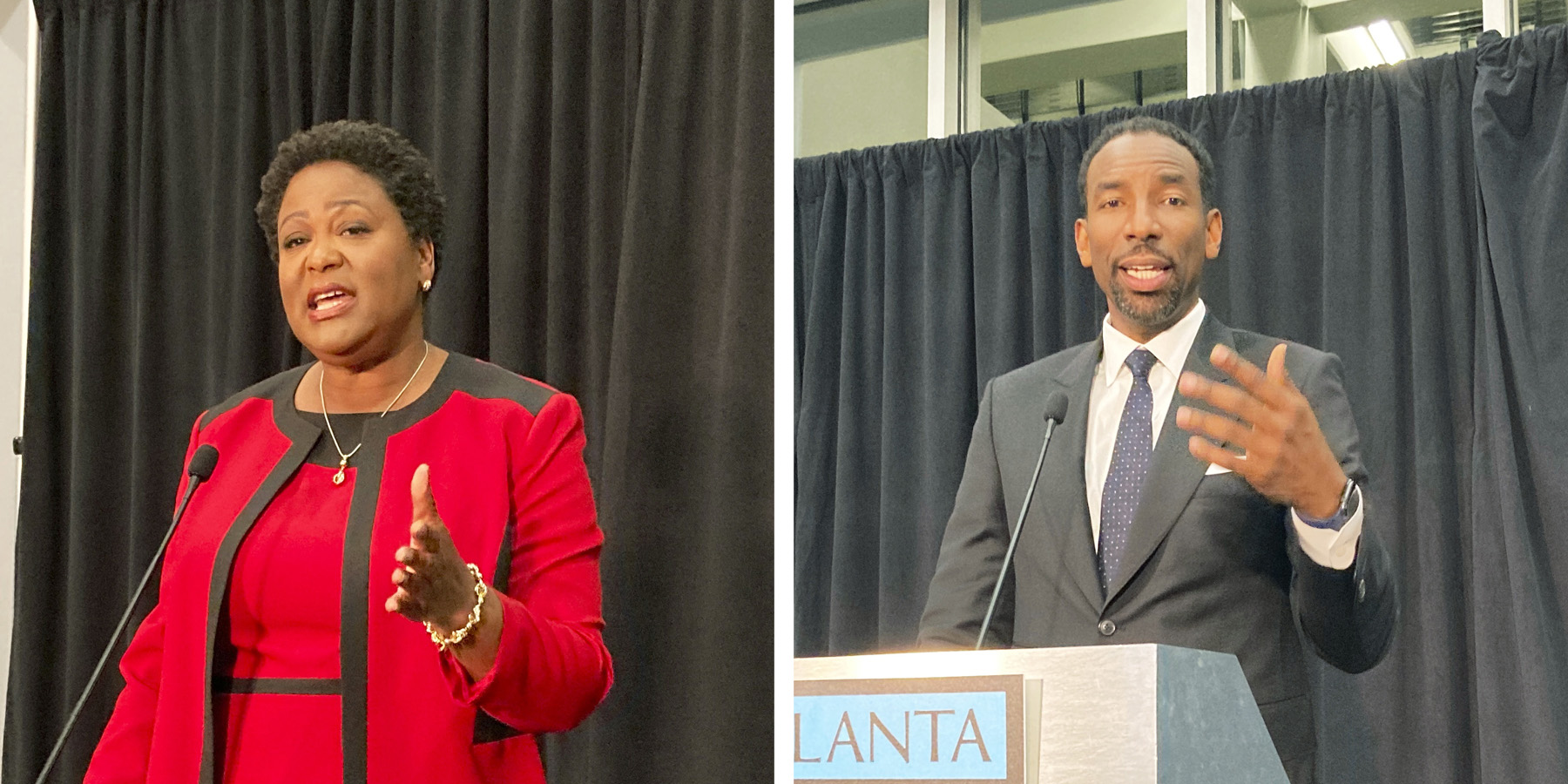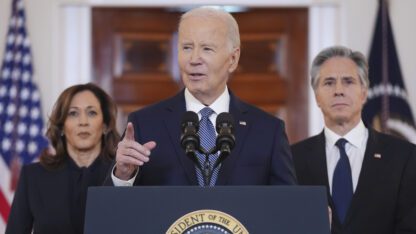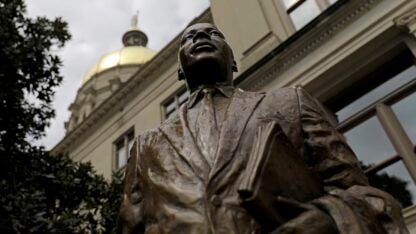Atlanta voters are deciding Tuesday’s mayoral runoff between one candidate who is comfortable as a lone wolf and another who has acquired a bunch of new friends.
Current City Council President Felicia Moore proclaims her independence as a virtue, and a plurality of voters agreed in the first round of voting on Nov. 2, giving her 41% of the votes across a nonpartisan field of 14 candidates.
But fellow City Council member Andre Dickens says Moore’s record as a sometimes-lonely critic of previous mayors proves he would be a more effective mayor, as he tries to win a race where he started well back in the field.
Mayor Keisha Lance Bottoms created a wide-open succession race when she announced in May that she wouldn’t seek a second term. That successor could have been former Mayor Kasim Reed, but his hopes for a third term ended when he narrowly finished third behind Dickens. Reed was dogged by corruption in his previous administration, although he said he himself was clean.
Moore jumped into the race even before Bottoms bowed out, saying becoming mayor was the best way to solve complaints she was getting about crime and city services. Moore argues her willingness to go against the grain proves she’s someone who will bring accountability and transparency to city government.
“I stepped into this race at a time when no one else had the courage to do it, to move the city forward, to help us at a time when we certainly have critical issues before us,” Moore said during a Nov. 16 debate. “I want to be our next mayor because I can make those tough decisions.”
Dickens has portrayed Moore as a naysayer, someone who has been unable to work with others.
“You constantly don’t find a way to say yes,” Dickens said during the debate. “Real leadership looks like rolling up your sleeves and finding a way to say yes.”
Dickens has reaped a slew of endorsements. He already had the nod of former Mayor Shirley Franklin before Nov. 2. Since then, he’s picked up support from Bottoms, U.S. Rep. and Democratic Party of Georgia Chair Nikema Williams, Fulton County District Attorney Fani Willis and Sharon Gay, an attorney who finished fourth in Nov. 2 voting.
Like many cities across the country, Atlanta has been dealing with a spike in killings. As of Nov. 7, homicides rose 10% over the same period last year and 59% compared with 2019, Atlanta police data shows. Several of those killings captured widespread attention.
Moore and Dickens have both focused on getting more officers onto the street quickly. But they differ on some other details. Moore has said she’d immediately seek a new police chief, while Dickens has said he might keep current Chief Rodney Bryant, who came out of retirement in 2020 after the previous chief stepped down following a fatal police shooting of a Black man that led to unrest.
Dickens has said he’s willing to let Fulton County temporarily use a mostly empty city jail to relieve overcrowding, while Moore said she’d consider letting the county take over the jail permanently.
Dickens voted for a failed measure that would have withheld a third of the police department’s budget until the mayor came up with a plan to overhaul the police department. Moore, who only votes when the council is tied, said she opposed the measure and accused Dickens of favoring defunding the police. Dickens denies that was his aim.
Some opponents of Moore attacked her as the favorite of white voters, a frequent tactic in a city where many white and Black voters are divided by income and geography. Both Moore and Dickens are Black, and Moore has dismissed that her support should be held against her.
“We are in a position in the city to start to bring people together,” Moore said recently, arguing she is “someone who can talk across divides, someone who can talk to people in the streets as well as the suites.”
Moore said her support in the wealthier, whiter section called Buckhead would be an asset in trying to squelch a secession movement in the area, an effort likely to preoccupy the first year of the next mayor’s term.









